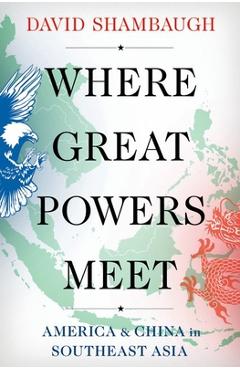Breaking the Engagement: How China Won & Lost America - David Shambaugh

Detalii Breaking the Engagement: How China
libris.ro
187.6 Lei
208.44 Lei
Political Science
David Shambaugh
Breaking the Engagement: How China - Disponibil la libris.ro
Pe YEO găsești Breaking the Engagement: How China de la David Shambaugh, în categoria Political Science.
Indiferent de nevoile tale, Breaking the Engagement: How China Won & Lost America - David Shambaugh din categoria Political Science îți poate aduce un echilibru perfect între calitate și preț, cu avantaje practice și moderne.
Preț: 187.6 Lei
Caracteristicile produsului Breaking the Engagement: How China
- Brand: David Shambaugh
- Categoria: Political Science
- Magazin: libris.ro
- Ultima actualizare: 28-10-2025 01:22:05
Comandă Breaking the Engagement: How China Online, Simplu și Rapid
Prin intermediul platformei YEO, poți comanda Breaking the Engagement: How China de la libris.ro rapid și în siguranță. Bucură-te de o experiență de cumpărături online optimizată și descoperă cele mai bune oferte actualizate constant.
Descriere magazin:
An internationally recognized scholar provides a powerful explanation of the Breaking the Engagement: How China Won & Lost America between the United States and China. For over five decades following the 1972 rapprochement between the United States and China, the two countries seemed to be steadily building a sound relationship, even accounting for periodic setbacks like the Tiananmen Square massacre. The last decade, though, has seen a sharp increase in tensions and a complete reorientation of American policies toward China--from engagement to competition. What happened? In Breaking the Engagement: How China Won & Lost America , esteemed scholar David Shambaugh examines the evolution, expansion, and disintegration of the American engagement strategy towards China. Shambaugh attributes the recent sharp deterioration of relations to a combination of China\'s actions and American expectations. Xi Jinping\'s increasingly assertive foreign policy and domestic repression has directly challenged American interests. More deeply, he argues that the real underlying cause is America\'s longstanding paternalistic approach to transform China into a liberal state and society which conforms with the US-led global liberal order. When China has generally evolved in this direction-- politically, economically, socially, intellectually, and internationally--it corresponds with American aspirations and the two could cooperate. But when Beijing pushes back against this transformative strategy--which Beijing sees as subversion--Americans become disillusioned and U.S. policymakers see China as a malign regime, which must be countered. By focusing on the role of perceptions and U.S. expectations in fueling the shift towards competition and rivalry in the last decade, Shambaugh provides a unique new perspective on this critical global relationship.

Produse asemănătoare
Produse marca David Shambaugh

Breaking the Engagement: How China Won & Lost America - David Shambaugh
![]() libris.ro
libris.ro
Actualizat in 28/10/2025
187.6 Lei

Where Great Powers Meet: America & China in Southeast Asia - David Shambaugh
![]() libris.ro
libris.ro
Actualizat in 24/04/2024
211.95 Lei

Where Great Powers Meet: America and China in Southeast Asia - David Shambaugh
![]() libris.ro
libris.ro
Actualizat in 11/04/2024
216.08 Lei